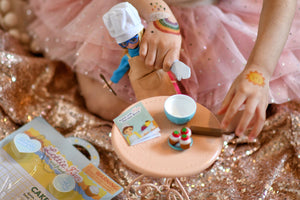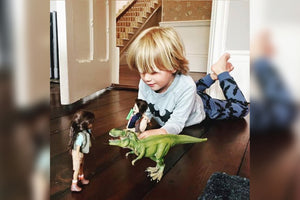Your childhood friends are special. They are your comrades-in-arms, your partners in crime, your fellow explorers, and creators. They are your personal fan club, your comforters, and your reality checks.
The prime childhood years occur from the ages of three to eleven, with adolescence starting at the age of twelve. During those nine years of childhood, many friendships are made and lost.
Some children are extroverts and claim many as their friends, while others are more introverted and will have their special friend or group of friends. At this point in childhood, cliques have yet to begin, with those starting at the time of adolescence.
When Childhood Ends
If you're lucky, you will have your childhood friends for many years, and some friendships even last into adulthood. However, the onset of adolescence can strain some friendships, completely breaking others.

When adolescence begins, your children start the process of becoming Tweens and Teens, and their worldly perspectives begin to change. Toys and playtime get set aside for more grownup pursuits, and unfortunately, some friendships start to fade.
There are many reasons why childhood friendship may not survive the onset of adolescence. It's at this time that new interests pop up and with new interests come new friends. Adolescence also brings with it organized extracurricular activities such as sports, clubs, and organizations that kid will begin joining.
It's at this time that cliques begin to form. The sporty kids hang out with each other, the band kids each lunch together, the more popular kids flock together, while the quieter kids will hang out only with their special friends.
Boys and girls begin to see each other in a new light, which can lead to awkwardness. Best friends can have fall-outs that build walls that can be hard to overcome.
And if your family moves away, or one of their friends moves away, maintaining a childhood friendship becomes even more challenging. Most kids are resilient enough to move on and form new friendships, letting their old friendships fade away with time.
Some children have a hard time letting go of these childhood friendships, while others naturally begin to gravitate towards newer friendships that share similar interests.
As a parent, we hate to see our children struggle with these changes. You want to fix everything for your child so that they don't have to experience heartache, sadness, or loneliness. Here are a few ideas you can do to help your child maintain the friends they already have or even make new ones.
Getting Together with Friends

Once your kids read a certain age, they no longer have playdates. Instead, they hang out and get together with each other. Encourage these hangouts, give them a safe place to hang out in your home. Let your child plan all the details for the get-together.
Long-Distance Friendships

If your child's best friend is now too far away to get together with, there are many ways you can help them stay in touch. Writing letters is making a comeback. Skype, Zoom, FaceTime, and other similar resources allow your children to see and talk to their friends even when they are miles away.
Join a Sport or Club to Make New Friends
Encourage your children to pursue their interests or discover new ones by joining local clubs or trying out sports. Children who share a common interest tend to gravitate towards each other.
Provide Opportunities to Meet New People
Get creative. Provide opportunities for your children to meet new children. Go to the library or the local ice cream parlor. Take an art class together, go to a concert or play in the park.

Practice Making Friends
Encourage your child to practice making friends. Let them see you making friendly conversation with strangers you meet in social situations. If they see you successfully engaging strangers, it might help them overcome any fear they may be experiencing themselves.
Befriend Different Age Groups
Encourage your children to make friends with other children in different age groups. Older children may take your child under their wing, or encourage your child to do the same with a younger child. Doing so will open their social world up to new possibilities.
Final Thoughts
Whatever you do, make sure you are there for your child, offering encouragement, understanding, and support as they go through these changes in their lives. Be sure to listen to what they have to say before jumping in and trying to fix everything for them. Some times they just a sturdy shoulder to cry on and the assurance that they are loved.
![]() Fast Shipping
Fast Shipping![]() Subscribe to our Newsletter
Subscribe to our Newsletter![]() 🌟 New Global Competition 🌟
🌟 New Global Competition 🌟



















